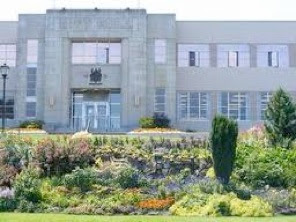Indigenous Health Perspectives are Needed

Robin Wall Kimmerer
Increasingly Indigenous perspectives on environmental stewardship is being recognised as the only way all humans will be able to co-exist with Earth. Given that First Nations have thousands of years of experience in the management of plants, soils, water and wildlife, why would they not be able to improve on current trends that are proving destructive of our life-support system?
Robin Wall Kimmerer’s popular book, Braiding Sweetgrass: Indigenous Wisdom, Scientific Knowledge, and the Teaching of Plants, powerfully addresses the western scientific blindness to nature-based science. “Western science is a powerful way of knowing, but it isn't the only one,” says Kimmerer.
While science is, in theory, open to new ways of understanding the world, it often isn’t. Kimmerer, like most Indigenous peoples in the western world, have had their traditional forms of knowledge ridiculed and dismissed. (See more about this here: https://www.cbc.ca/radio/tapestry/why-is-the-world-so-beautiful-an-indigenous-botanist-on-the-spirit-of-life-in-everything-1.5817787.)
Other Indigenous peoples are proving just how traditional methods are equally scientific. I found Nicole Redvers book The Science of the Sacred; Bridging Global Indigenous Medicine Systems and Modern Scientific Principles to be highly illuminating, where she proves the scientific foundation to many Indigenous methods of healing. Their approach is far more holistic than are the standard western medical practices, methods that honour the patient and their context.
Indigenous peoples have thousands of years of experience in healing illnesses and promoting health. Here is a 45-minute film about First Nations in Colombia who have been preventing an outbreak of Covid-19 with apparent good outcomes (Spanish with English subtitles): https://cosmopandemic.esperanzaproject.com/?lang=en.
Did you know that the active ingredient found in the majority of modern medications originated in plants? By combining these ingredients with foreign materials (usually synthetic oil derivatives), the pharmaceutical companies are able to patent their invention and thereby generate enormous profits. What I find so amazing is that while those corporations know well the science behind the healing properties of thousands of plants, the medical community is almost utterly ignorant of them, and frequently dismissive of those who prefer to use those plants in their unadulterated (usually safer) form. Indeed, physicians typically learn very little about nutritional health in their programs of study. There is a historical reason for this: about a century ago the western medical system was largely funded by an oil baron by the name of Rockefeller.
Increasing numbers of people are turning to natural methods of healing after suffering from side-effects (some very serious) from those oil-derived “health” products. While they are powerful, and frequently effective at treating the symptoms of the illness, and are prescribed by usually caring and highly trained practitioners, they seldom cure the patient.
Perhaps just as we are beginning to value Indigenous approaches to improving Earth’s health, it may be time to learn from them when it comes to embracing our own health. Certainly there is a tremendous amount of scientific research being conducted on plants, much of which is being actively suppressed by search engines and health authorities, just as vital information about the increasingly sick state of planet Earth is not being taken seriously by corporate and political bodies. Colonialism is still with us. But not likely for much longer.
Our well-being depends on it.



Comments
Post a Comment
Thank you for commenting on this post. Your comment will be moderated before being posted in order to remove spammers.